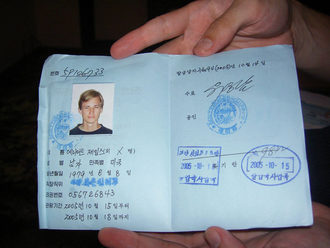 People come to America for many reasons. We come in search of a better life and future. We come for our children – to provide them with more opportunities. But sometimes people try to enter the U.S. at all cost – even if this means committing fraud. 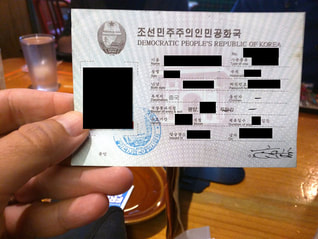 The U.S. Embassy in Manila is considered a high fraud post because of the enormous amount of fake documents and scams people use to get past the gatekeepers. For example, one would pretend to be single while actually married. Another will use a fake passport with a different name or identity. And yet another will not reveal that he has children. Many immigrants get away with the fraud. They get admitted in the U.S. They arrive and become productive members of the community. Others are less fortunate. They get caught. The penalty is severe. Removal from the U.S. may mean a bar of over ten years. However, even if a fraud is committed, there is a way to legally stay. Preparation and knowledge are keys. Find out ahead of time how to handle the interview at the immigration office. Any willful misrepresentation of a material fact or the presentation of a fraudulent document will get you in trouble. However, there are solutions. If you can show that the fraud or misrepresentation was not willful or if it was unintentional, you maybe off the hook. If you didn’t know that you were committing a fraud, how can you be guilty of the fraud? Don’t act as your own attorney. The saying that “one who acts as his own attorney has a fool for a client” applies here. Seek legal counsel if possible. Even you are caught committing a fraud; there may be waivers that are available. A waiver is a legal term for “forgiving the fraud.” You may be allowed to admit the fraud and still enter the U.S. These are called “waivers of inadmissibility.” There are requirements attached to this waiver. Many of these waivers require that you are related to a U.S. citizen or a “green card” holder. Again see an attorney to find out about these requirements. If the consul is unable to approve your case the first time, you are entitled to a written explanation. If the fraud can be mitigated, you’ll be given a chance. If not, the reason for the denial should still be in writing. Many consular decisions can be challenged. These State Department employees are humans and they make mistakes. Due to the high volume of cases that are reviewed, errors are not unusual. If you are accused of fraud or misrepresentation and you don’t agree, relax. Take your written explanation with you and see a qualified immigration lawyer. It’s always better to enter the U.S. legally. But if fraud was committed, don’t give up hope. There are legal loopholes and there are potential reliefs. You can still live a normal life and be a productive member of the community. The key is to know your rights and to get the right advice
0 Comments
 Sad Story Roselva Chaidez, a legal U.S. Resident – not a citizen – lives in the U.S. along with her three children and two grandchildren, all of whom are bona fide American citizens. She was born in Mexico and had been a lawful permanent resident since 1977. However, in 2003, under a lawyer's advice regarding a plea agreement, she plead guilty in an accident insurance scam. She had illegally received $1,200 by falsely claiming to be a victim in a car accident. She received four years probation as a result of her plea agreement. End of Story A person makes a poor choice, ends up in trouble with the law, and does her time. That's a rather typical end for a rather typical American story – law broken, justice served, society placated. But the story doesn't end there. Roselva applied for citizenship in 2007, thinking that her debt to society had indeed been paid. “Not so!” said immigration authorities. They denied her application for citizenship and sought to deport her because of her single conviction. Her crime is regarded as an aggravated felony and grounds for deportation of even legal U.S. residents. Continuing Story As matters have come to light, during her criminal trial Roselva's attorney never disclosed to her the possibility that her plea agreement of guilty could lead to her deportation. Roselva did not discover the issue until she applied for citizenship. She figured she'd done the time to pay for the crime. As a last ditch effort to stay in America with her family, Roselva is applying for relief by virtue of the Sixth Amendment of the U.S. Constitution which guarantees any defendant in U.S. Courts the right to competent legal representation in courts of law. Telling the Story to the Judges Though the court has always been strong about incompetent counsel, it has not been really clear about how that should affect immigrants. In 2010, the Supreme Court held that a lawyer has a constitutional duty to advise a client – who is not an American citizen – that pleading guilty to a criminal offense could lead to being deported. So, if a lawyer fails to do that, the client does indeed have a claim regarding ineffective counsel under the Sixth Amendment, even as an immigrant, and thus has a qualified plea in immigration proceedings. Though there are some other legal considerations, precedent exists as it is set in the language of the 2010 case, and some other previous cases, that matters regarding immigrants and incompetent attorneys can be considered retroactively regarding criminal proceedings and how they affect immigrants.
One Story, Many Issues Roselva did her time. Roselva had a lousy lawyer when she was in criminal court. Now Roselva is facing deportation and alienation from her close family. Sometimes the mills of the law grind up lives a little too finely. Roselva may have made a bad choice, but she doesn't deserve what may befall her, especially if she could have been advised by competent counsel when she faced a criminal conviction. Her attorney probably didn't have a clue as to how her status as an immigrant would have been affected by her plea bargain. Roselva herself has even stated that she would have accepted far harsher punishment in return for allowance to remain in America with her loved ones. The Morals of the Story If anything is to be learned from this story, it's the admonition that you better have competent counsel when faced with a legal or criminal problem, especially if you are looking to become a citizen. Another thing to consider from this story is that if you are having problems with attaining legal status because of a past conviction, there may be a Sixth Amendment reprieve if incompetent counsel regarding your immigrant status can be proven. Happy Endings When Roselva's ruling comes through, the immigrant community may experience some relief. But, filing for relief from deportation under the premise of having a conviction overturned that is causing that deportation, is a very complicated process. So many maze-like avenues exist; they can range through dealings with immigration courts, state courts, district courts, filings of injunctions, and myriad other complications. Don't Write the Story Yourself If you are on unsure ground regarding your immigrant status, don't attempt a foray into such a legal morass as unfolded above without a competent immigration attorney. This case alone shows that belaboring clients to seek effective guidance from the outset of any legal proceeding is the only way to ensure happy endings. Incompetent counsel has always been a problem; after all, the American founders wrote the Sixth Amendment more than two-hundred years ago – and based that on ancient knowledge. Thanks to Roselva, maybe we'll soon have an update for American immigrants. 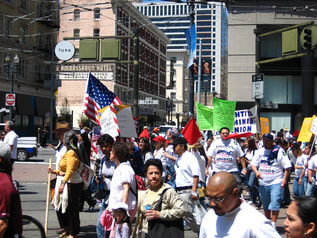 Grim Possibility Imagine. Just imagine that you're a 25-year-old guy having lived his past nineteen years on Maple Street in one of the suburban enclaves of Oakland or San Francisco. You have grown up like any other American kid: going to school, riding bikes with your buds, working at odd jobs and helping your family, volunteering in the community, unfolding the dreams of your future. You have no yearnings for a foreign land; you're an American. Then you suddenly find yourself in the Philippines at Manila's Ninoy Aquino International Airport. To hitch a bus ride into town, you're getting ready to spend too many of the last few dollars you were able to yank from your bank account. You have the clothes on your back, maybe a duffle bag of personal belongings. You have no family, no friends, no home, no job. You may know a little Spanish, maybe even a smattering of Tagalog, but not quite enough to ask for simple directions, or find a cheap but safe hotel, or a decent place to eat. You are a Dreamer. But your dreams have been shattered. You have been deported from your American home because the nation's lawmakers couldn't figure out how to deal with your kind. Grim Reality I have a client, Chris, facing such a dilemma. When it comes down to it, he could possibly be facing life-or-death situations if forced to return to his long-forgotten land of origin. Presently, he is under the protection of DACA, or Deferred Action for Childhood Arrivals, an executive order benevolently provided by former President Obama. That president felt compelled to wield that executive order when a recalcitrant Congress chose not to govern on behalf of youngsters – youngsters who are Americans in every way, except on paper. The Congress was just too scared to put their political lives on the line by ruling on such a controversial subject. They knew the right thing to do – give these youngsters a solid path to citizenship. But, in a do-nothing mode of governance, which they seem to have perfected over the last eight years or so, they sat on their hands. Chris is one of the 800,000 facing deportation should DACA be allowed to vanish. These kids and young adults have committed no crime except to innocently follow their parents in search of opportunity and a better life – the American Dream. Trump has vacillated, demanding that Congress come up with legislation. And his attorney general, though all too happy to announce the demise of DACA, has given a do-little Congress six months to find a solution. Don't hold your breath, even though the nation faces bitter loss. Have a Heart Yes, Chris and others may be out of luck in a few months. Like many, he is a talented and humble person. He has ambitions of becoming a doctor. He arrived in America from the Philippines at the age of six. (Incidentally, approximately 10,000 Filipino childhood arrivals could be affected if anti-immigrant forces have their way.) His family was poor but they persevered. His dad took labor-intensive jobs while his mom was the homemaker. Chris has expressed his desire to help those who can’t afford to pay for a doctor. He knows he has a long way to go, but doesn't mind the wait and the hard work to get there. He continues to go to school and works to help his family. He has never committed a crime and volunteers often at a local homeless shelter. During one meeting Chris told me that he sees the need for caring doctors in the community. “People just need to feel that they are being listened to,” he told me. Of course, he has hopes of one day raising an American family in an American home. An Assault on Contributing Americans The cancellation of DACA would be a direct assault on the thousands of immigrants like Chris. They are studying and working, paying taxes, and making a significant contribution to America. Dreamers like Chris are Americans. These youngsters have tried to make the best of the opportunities that they encounter. Many are volunteers within their communities. DACA has proved to be a success. Simply put, it gives undocumented young people, brought to the U.S. as children, an opportunity to study and work without fear of deportation. It provides a two-year time of protection and a permit to work legally. And then there is a renewal process and the requirements are stringent. High school enrollment or successfully receiving a diploma or GED is necessary. Honorable military discharges are acknowledged. There can be no criminal record. Each must have lived in the U.S. continually since 2007. There is no sane reason to deport or remove these Dreamers. In fact, consider the insane costs incurred should the authorities have to hunt down 800,000 youngsters, take them to court, and then physically relocate them abroad. Consideration should also be given to the loss of revenue should we deport these folks. Dreamers contribute significantly to our economy. For instance, reports have shown that eliminating DACA would cost $433.4 billion in GDP over a decade, and reduce Social Security and Medicare tax contributions by $24.6 billion over the same time period. Trust Betrayed Relying on the hope and promise of our American government, these trusting youngsters have come forward, revealing their lives and their whereabouts, submitting résumés and applications. Should DACA fall away, they have laid themselves bare, ready to be grabbed by Immigration and Customs Enforcement (ICE) and sent abroad to lands they do not know. A trust betrayed. Anti-immigrant forces assert that ending DACA would mean more available jobs and more economic opportunity for natives. No facts back up those assertions. To the contrary, young and busy people have always been an economic benefit to our nation, no matter their origin. Indeed, we are already seeing immense opposition from the high-tech industry sector. Apple and Microsoft employ many DACA workers. Some of my friends from Stanford University believe that many Ivy League schools will be taking a formal position opposing the loss of DACA. Action Required As a nation of well-meaning immigrants – And we all are, aren't we? – we cannot afford to stand aside and let these Dreamers be tossed away. It's plain cruel and not in line with traditional American values. This is not a time to be partisan, or to label ourselves liberal or conservative, or to make this a racial issue. This is a human crisis crying out for humane action. Good Americans must raise their voices in communications with representatives and use their ballots for the good cause. What’s at stake are the lives of thousands of young people who call America their home. Congress must act quickly to pass a bipartisan Dream Act of 2017, without any holds, games, or trades by any party. We must not play political ping-pong with the futures of these young American Dreamers. Perhaps one day my client Chris will become Dr. Chris, if we allow him to have his American dream. Or, maybe one day Chris will be sitting at a desolate bus stop in a foreign land, wondering what happened, what his next desperate move might be, shaking his head about America and lost promise. There is no point to this cruel madness. We are currently reviewing the most recent development about DACA. There will more updates on this website. In the meantime please do the following:
|
Archives
July 2024
Categories
All
|
CONTACT
|
|



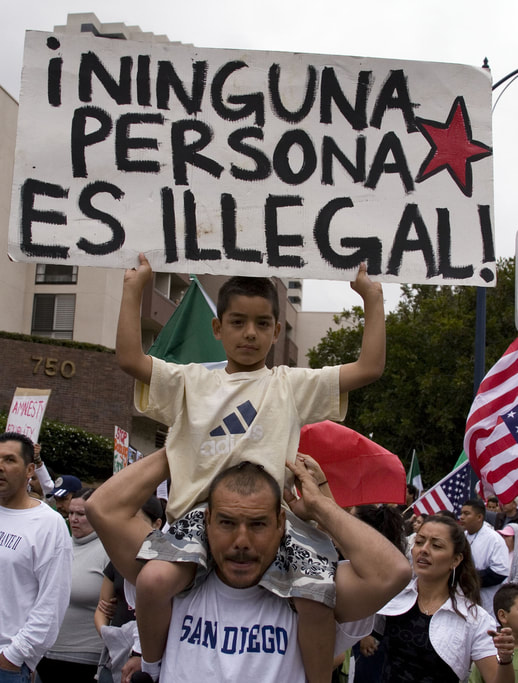
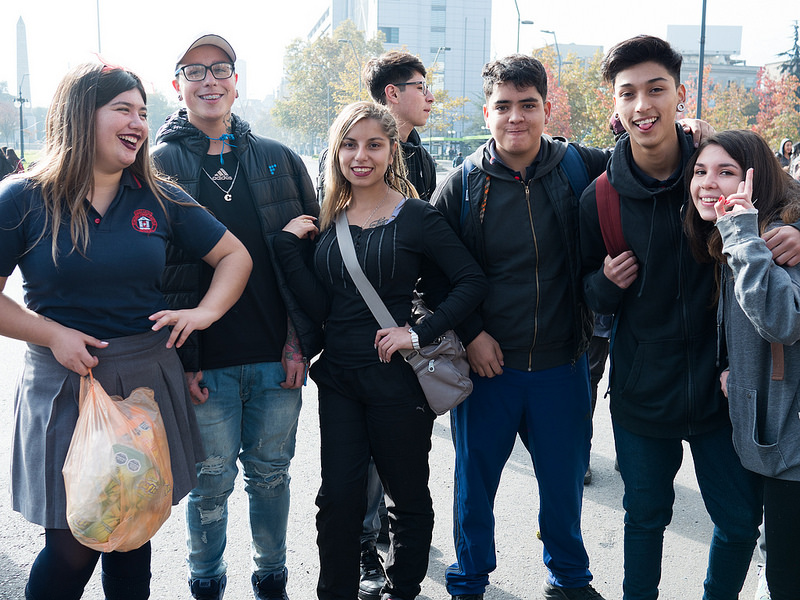

 RSS Feed
RSS Feed